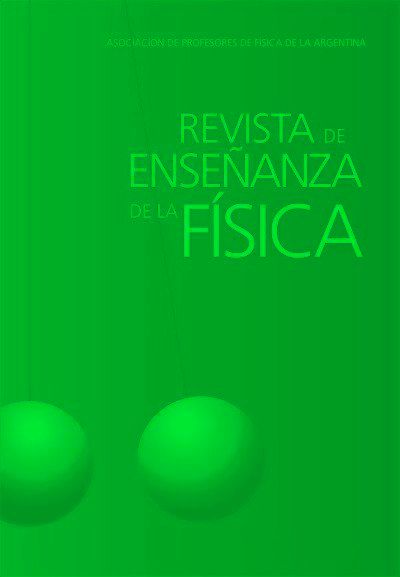Methodological strategies for the content oscillations and mechanical waves in Industrial Engineering
DOI:
https://doi.org/10.55767/2451.6007.v33.n2.35185Keywords:
Meaningful learning, Physics laboratory, Methodological strategies, Oscillations and mechanical wavesAbstract
This work presents the results of an experience in the Laboratorio de Física General II course at the Universidad de Costa Rica, Sede de
Occidente, during the second semester of 2020. A diagnosis was made to a sample of the student population and the teaching staff.
of the Physics Section. Through a survey and an interview, it was inquired about methodological strategies, didactic material and evaluations
used in previous semesters. In addition, information was collected on the training needs and expectations of the students of
the Industrial Engineering career for the course. With the information collected, an educational strategy was developed to implement
under the virtual modality, using the institutional platform Virtual Mediation. The proposal introduces the constructivist approach to
the curricular content "Oscillations and mechanical waves" under the virtual modality, using a sequence of activities that promote
meaningful learning in the student. The educational strategy was validated by an expert and evaluated by the students of the course.
The results obtained show the presence of the constructivist approach in the elaborated proposal.
References
Cabello, J. (2010). Experimentos sencillos de onda estacionaria en tubos. Revista de Enseñanza de la Física, 23(1-2).
Díaz, F. y Hernández, G. (2002). Estrategias docentes para un aprendizaje significativo: una interpretación constructivista. 2da edición. México: McGraw-Hill Interamericana
Davis, N.; McCarty, B.; Shaw, K. y Sidani-Tabbaa, A. (2006). Transitions from objectivism to constructivism in science ed-ucation. International Journal of Science Education, 15(6), 627-636
Espinosa-Ríos, E.; González-López, K. y Hernández-Ramírez, L. (2016). Las prácticas de laboratorio: una estrategia didác-tica en la construcción de conocimiento científico escolar. Entramado, 12(1), 266-281
Holmes, N. G., y Smith, E. M. (2019, Mayo). Operationalizing the AAPT Learning Goals for the Lab. The Physics Teacher, 57(5), 296–299. doi:10.1119/1.5098916
Moreira, M. A. (2014). Enseñanza de la física: aprendizaje significativo, aprendizaje mecánico y criticidad. Revista de En-señanza de la Física, 26(1), 45-52.
Romero, M. y Quesada, A. (2014) Nuevas tecnologías y aprendizaje significativo de las ciencias. Enseñanza de las ciencias, 32(1), 101-105.
Serway, R. y Jewett, J. (2019). Física para ciencias e ingeniería. 10th ed. México: Cengage.
Sutarno, S.; Setiawan, A.; Kaniawati, I. y Suhandi, A. (2019) The development of higher order thinking virtual laboratory on photoelectric effect. Journal of Physics: Conference Series, 1157(3), 032034.
Trumper, R. (2003). The Physics Laboratory – A Historical Overview and Future Perspectives. Science & Education, 12, 645–670
Valdés, P. y Valdés, R. (1999) Características del proceso de enseñanza-aprendizaje de la física en las condiciones con-temporáneas. Enseñanza de las ciencias: revista de investigación y experiencias didácticas, 17(3), 521-523
Published
How to Cite
Issue
Section
License
Copyright (c) 2021 María Gabriela Campos Fernández

This work is licensed under a Creative Commons Attribution-NonCommercial-NoDerivatives 4.0 International License.
Aquellos autores/as que tengan publicaciones con esta revista, aceptan los términos siguientes:Los autores/as conservarán sus derechos de copiar y redistribuir el material, bajo los términos estipulados en la Licencia de reconocimiento, no comercial, sin obras derivadas de Creative Commons que permite a terceros compartir la obra bajo las siguientes condiciones:
- Reconocimiento — Debe reconocer adecuadamente la autoría, proporcionar un enlace a la licencia e indicar si se han realizado cambios. Puede hacerlo de cualquier manera razonable, pero no de una manera que sugiera que tiene el apoyo del licenciador o lo recibe por el uso que hace.
- NoComercial — No puede utilizar el material para una finalidad comercial.
- SinObraDerivada — Si remezcla, transforma o crea a partir del material, no puede difundir el material modificado.
- Los autores/as podrán adoptar otros acuerdos de licencia no exclusiva de distribución de la versión de la obra publicada (p. ej.: depositarla en un archivo telemático institucional o publicarla en un volumen monográfico) siempre que se indique la publicación inicial en esta revista.
- Se permite y recomienda a los autores/as difundir su obra a través de Internet (p. ej.: en archivos telemáticos institucionales o en su página web) antes y durante el proceso de envío, lo cual puede producir intercambios interesantes y aumentar las citas de la obra publicada. (Véase El efecto del acceso abierto).














